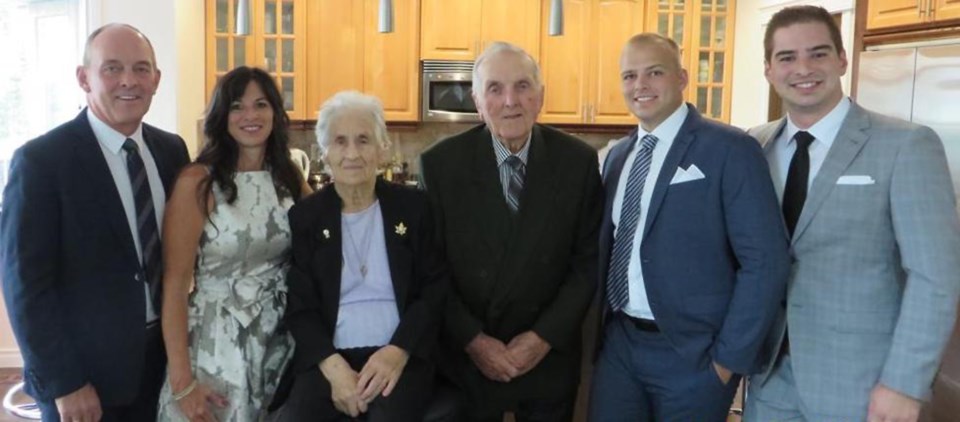ATHABASCA - Darcy Byrtus grew up on the family farm north of Athabasca with his parents Stan and Diana, his sister Monica and brothers Gary and Kirk.
After a long and successful career in the Royal Canadian Navy Byrtus retired from military life and entered private industry where he has worked his way to president of the Canadian arm of the international company British Maritime Technology (BMT) where he works closely with the Royal Canadian Navy on the national shipbuilding strategy.
“I graduated from Edwin Parr Composite High School in 1975 and went to Royal Roads Military College in Victoria,” said Byrtus via e-mail. “After graduation in 1979 and a year at the Royal Naval Engineering College in the UK, I was posted as Deputy Engineering Officer of HMCS Preserver, one of our fleet replenishment vessels and then worked in the ship repair unit as the Contracts Officer at the Navy’s west coast base in Victoria.”
After serving as Engineering Officer of the HMCS Kootenay, a Canadian Restigouche Class Destroyer, he attended the Massachusetts Institute of Technology (MIT) where he received a Master of Science degree in naval architecture and a Master of Science degree in mechanical engineering.
“On returning to Canada I was fortunate to work on several interesting projects such as Canadian Patrol Submarine Project, the New Shipborne Aircraft Project and as the Ship Systems Manager in the Canadian Patrol Frigate Project for the construction of the first 10 of the ships,” Byrtus said.
He was then posted to the Inter-American Defence College in Washington, D.C. and upon returning to Ottawa served in the assistant deputy minister (policy) office responsible for Latin American policy.
After 22 years in the Navy Byrtus retired and joined General Dynamics Canada where he spent 16 years working on several projects including project manager of the Hydra Underwater Warfare System Project for the Royal Swedish Navy and project manager for the Canadian Air Force Maritime Helicopter Project.
“In 2014 I took on the role of president of BMT Canada. BMT Canada provides engineering and management support to the Royal Canadian Navy on their largest naval shipbuilding projects.”
The Canadian BMT head office is in Ottawa, and they have offices in Victoria, Halifax and Calgary.
“Designing, building and supporting warships and submarines is one of the most complex enterprises in the world which makes it an interesting and rewarding job,” he said. “In addition, part of our business does material research for pipeline integrity issues for the major pipeline operators in North America.”
While Byrtus was in the military he was able to come home on leave during the summers and as his family grew, they came back whenever they could.
“My wife Catherine and I made a point to send our two sons, Jed and Dustin to Athabasca in the summer when we could to spend time on the farm and with the extended family.”
His early influences could have led him to becoming a physician, but a friend’s brother changed his mind.
“Thanks to an excellent biology teacher in high school I seriously considered medical school,” he explained. “I had not considered, or even heard of Military College, until the brother of a friend of mine attended Military College and told me I should consider it.”
Byrtus was a member of the Air Cadets as a teenager which gave him some understanding of the military.
“But when you are 17 and leave home and join the military and you don’t come from a military family it is difficult to know exactly what you are getting into.”
That lack of knowing did not last long though and he found his calling.
“One of the interesting things about the military is that there are so many options available that most people do not know about when you first join,” he said. “In fact, I originally joined as an aeronautical engineer and switched to marine engineering in the first year.”
Byrtus added that most people do not appreciate the advantages of growing up in a small town, or on a farm.
“When I left home, I assumed everyone knew how to fix their own vehicles, build anything, do plumbing and electrical work, know how to hunt and fish, grow a garden and think nothing of routinely work 12-hour days,” he commented. “It is not until later when you realize those experiences give you life skills that are important no matter what career choice you decide to make.”



